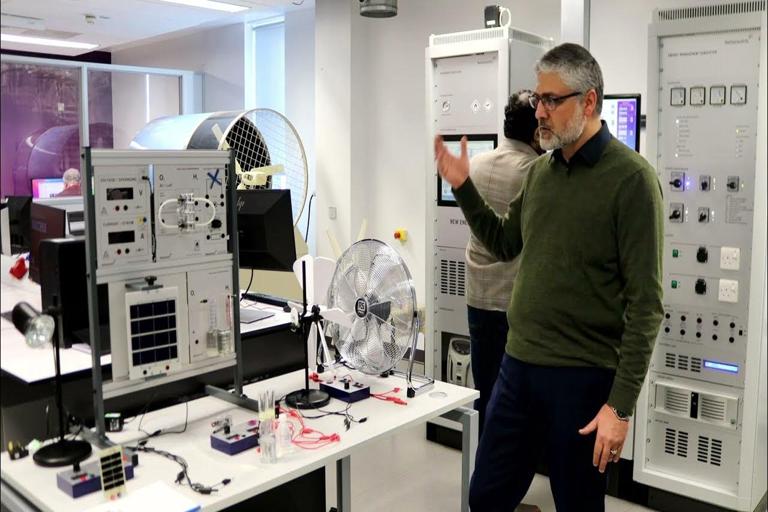Engineers in Bristol have drawn national attention after revealing a prototype for a highly efficient home battery system designed to improve residential energy storage across the UK. The team, based at a local innovation centre, has spent the last three years refining the unit’s compact architecture and thermal stability. Early demonstrations showed that the prototype can store surplus energy from rooftop solar panels with significantly reduced losses, an achievement that industry observers say could reshape how households manage their daily electricity needs.
During testing, the prototype performed with a consistency typically seen only in larger commercial batteries. Engineers attribute this reliability to a newly developed control system that regulates charge and discharge cycles in response to household usage patterns. The system reduces wear on internal components, which has long been a challenge for compact batteries exposed to frequent energy fluctuations. By James Holloway ·
One of the unit’s standout features is its integration with forthcoming smart-grid infrastructure planned for several UK regions. The design allows it to synchronise with utility providers, automatically storing power during off-peak hours and releasing it during high-demand periods. This approach not only offers households potential bill savings but also supports wider grid stability by reducing strain on the national network. As more renewable sources come online, such coordination is becoming increasingly important to balance fluctuating supply and demand.
Local officials say the project demonstrates the strength of Bristol’s growing reputation as a hub for green innovation. With strong links between universities, research centres and manufacturing firms, the city has cultivated an environment where early-stage engineering projects can quickly move from concept to prototype. The battery system’s development has also attracted interest from venture partners, who view the technology as a promising step toward affordable domestic energy independence.
While the prototype is still undergoing refinement, community trials are expected to begin in select Bristol neighbourhoods later this year. These trials will help engineers assess real-world performance, including the system’s behaviour during long periods of cloud cover or sudden spikes in household consumption. Participants will receive detailed energy reports throughout the trial, giving both the research team and residents insights into how the system contributes to cost savings over extended periods.
If the project continues on its current trajectory, engineers hope to secure certification and regulatory approval for commercial deployment within the next two years. Analysts say that widespread adoption of home batteries will likely accelerate as electricity prices fluctuate and more families seek predictable, manageable energy solutions. For Bristol’s engineering community, however, the immediate focus remains on refining the prototype and demonstrating its potential to transform how homes across the UK store and use energy.
